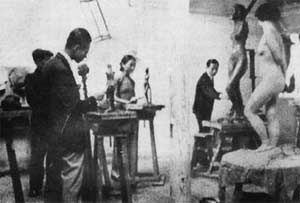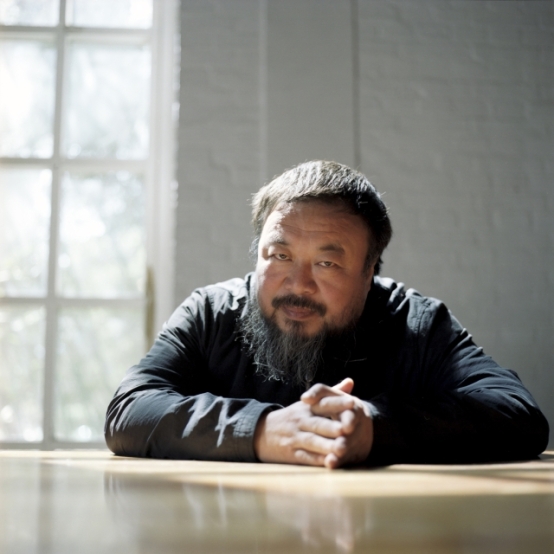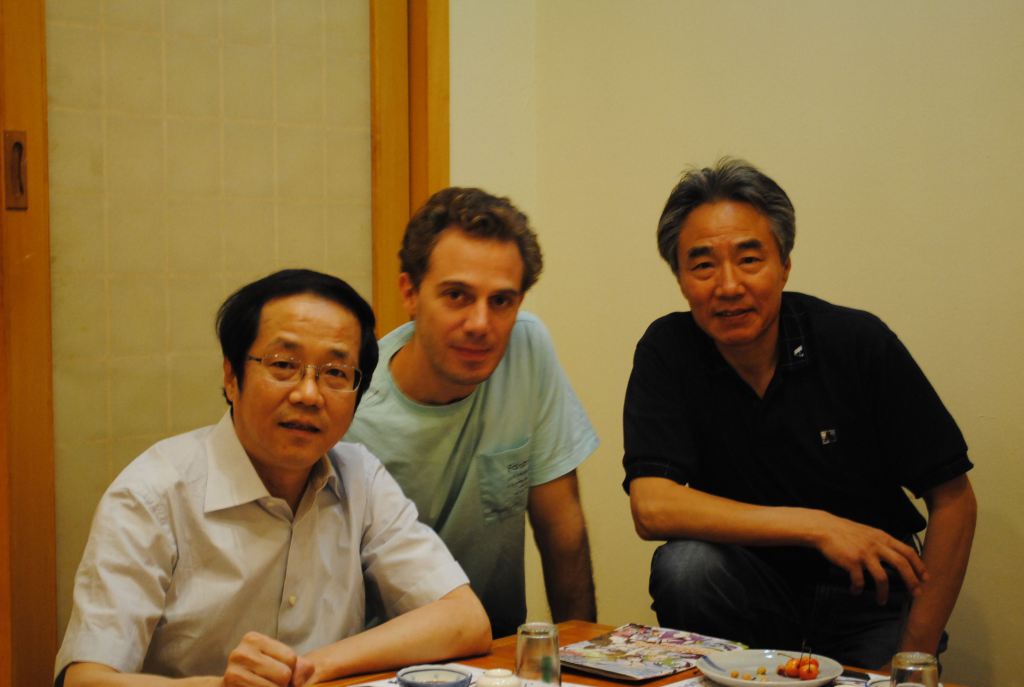
Yang Feiyun 杨飞云
Nude in Front of Canvas
Oil on canvas, 100 x 83 cm, 1988
Ai Weiwei’s forays into nudity have me thinking of late about nudity in Chinese art and literature. In fact, I’m reminiscing a bit back to my first arrival in China (as a student largely ignorant of Chinese) in 1989, a few months after the Tiananmen Square incident of June 4th, but also a few months after the closing of the “first ever works of the Chinese Nude Oils Exhibition” in which the image above appeared. The connection between these two points is striking. Since at least 1984, the official campaign against “spiritual pollution” took such imagery as its target. Nonetheless, artists and others continued to defy this impossibly vague prohibition and by June of 1989 the general swell of public-driven demand for liberalization across institutions from the purely political to completely aesthetic can be said to have congealed into a single “movement.”
Subsequently, though, everyone goes their separate ways, with Ai Weiwei making a name for himself by, among other things, taking pictures of himself and friends in the nude. Little remarked in the circulation of these images would be the somewhat more notable example of Ma Liuming, as photographed by Rong Rong in the Chinese “East Village.” Below, even more famously, on the Great Wall:

image
Meanwhile, the fact that the 1988 exhibition was nothing like the “first ever” is the historical anomaly I often ponder when looking at the remarkable way that Chinese contemporary art and literature have developed in the last 20 years. It is an ongoing curiosity for me to note the ways in which the contemporary Chinese scene 1. looks like the 1920s and 30s and 2. seems to be studiously unaware of this historical consistency. An additional disconnect can be found, moreover, in terms of the literary and artistic worlds. For while this exhibition was taking place in 1988, the shift toward Third Generation Poetry was well underway, and shortly thereafter, the birth of “Lower-body Poetry” led by, among others, Yin Lichuan 尹丽川

image
The challenges to sensitive sensibilities of government censors and general public alike are equally disturbed by the words of Yin Lichuan as any visual artist, Ai Weiwei among them. Here in excellent translation by Stephen Bradbury:
I Still Can’t Get My Head Around Why
time and again
my flesh goes out the door without me
to do whatever it damn-well pleases
like getting hot and heavy
in a bathroom stall with some joker
I wouldn’t as a rule give the time of day to
before I break down into a jagging fit
while the real me is left stranded in some absurdly public forum
going on and on about god-knows-what
in some trivial dispute with a horde of characters
who aren’t even there
at other times I find
my flesh possessed
by someone else’s
as if I had become another person
and I’m the perfect model of decorum
as courteous and deferential as a guest
2002/10/7
But all this goes back much further. In terms of literature, the poetry of Shao Xunmei 邵洵美 in the middle 1920s was scandalous。 And even before this, famed painter Liu Haisu, way back in 1914, was the instigator of the first (arguably) self-consciously NUDE controversy in the Chinese art world。

image
Which brings us back to the contemporary scene, but not the contemporary of Ai Weiwei, precisely. I simply marvel at the way a contemporary (interminable?) conversation continues about the relationship between modernity, nudity, and obscenity, and continues typically as though none of this has ever been said before.

(fuck your mother)



































